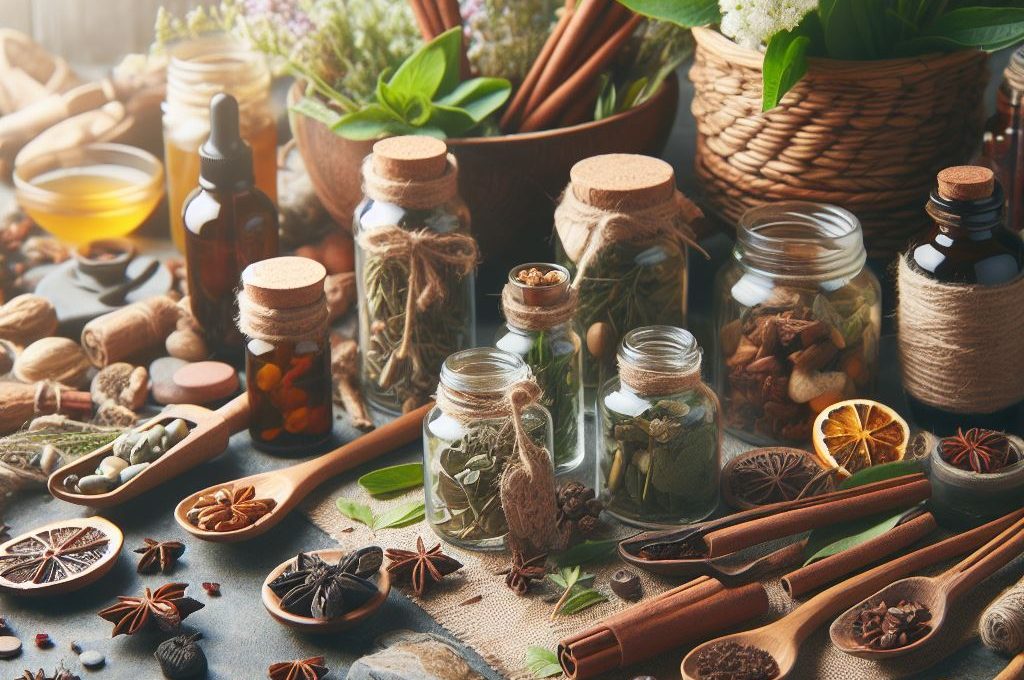In today’s fast-paced world, it is easy to forget the ancient healing remedies that our pioneer ancestors relied on during their settlement of the untamed land. Long before modern medicine took center stage, pioneers turned to the power of herbs and nature to cure their basic ailments. Rediscovering these pioneer-style herbal remedies can provide invaluable insight into the health benefits of natural elixirs. So, let’s dive into the forgotten world of herbal remedies and explore the herbs pioneers used to treat common ailments.
Fever and Inflammations: Willow Bark
Willow bark, derived from willow trees, served as an effective painkiller and antipyretic for pioneers. Its active ingredient, salicin, is chemically similar to aspirin. To alleviate a fever or inflammation, create a decoction by simmering 1-2 tablespoons of dried willow bark in a cup of boiling water for 15 minutes. Take this herbal remedy 2-3 times a day until symptoms subside.
Coughs and Sore Throat: Slippery Elm Bark
Pioneers turned to slippery elm bark to soothe coughs and alleviate irritated throats. Mix one tablespoon of powdered slippery elm bark with warm water to create a paste. Consume this mixture 2-3 times daily for relief.
Digestive Issues: Peppermint
Peppermint, renowned for its calming effects on the stomach, was commonly used by pioneers to treat digestive issues such as indigestion and bloating. Steep 1-2 teaspoons of dried peppermint leaves in a cup of hot water for 10-15 minutes. Sip this herbal infusion after meals or as needed to ease discomfort.
Wounds and Cuts: Calendula
Calendula possesses potent antimicrobial and anti-inflammatory properties, making it an indispensable herb for wound healing. Create a salve by infusing dried calendula petals in olive oil for 2-3 weeks. Apply the resulting oil to cuts, wounds, or skin irritations to aid in the healing process.
Headaches: Feverfew
Feverfew, with its potent anti-inflammatory properties, was commonly used by pioneers to alleviate headaches and migraines. Chew on a few feverfew leaves or brew a tea by steeping 1-2 teaspoons of dried leaves in hot water for 10 minutes. Consume this herbal remedy at the onset of a headache for relief.
When using pioneer-style herbal remedies, it’s important to note their shelf life and frequency of consumption. Store dried herbs in airtight containers away from sunlight or extreme temperatures to ensure their longevity. Typical shelf lives range from 1-3 years, but it’s always best to use fresh herbs whenever possible.
As for frequency, it’s advisable to use herbal remedies consistently but sparingly. Follow the recommended dosages and refrain from exceeding them without proper consultation. These remedies are meant to support natural healing and well-being but are not substitutes for professional medical advice when necessary.
Incorporating pioneer-style herbal remedies into our lives reconnects us with our ancestral wisdom and teaches us to appreciate the remarkable healing power of nature. By diving into these authentic and time-honored remedies, we can find natural and effective solutions for basic ailments, empowering us to embrace a healthier, more sustainable approach to well-being.
The Author:
Pioneerthinking.com – Ingredients for a Simple Life.
Photo. PT
